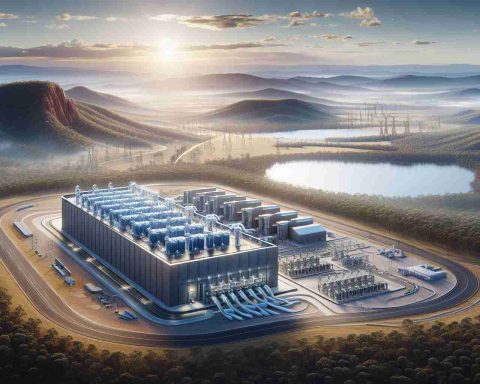Misinformation About GM’s Factory Zero
Recent claims by Michigan Democrats suggested that Donald Trump’s administration has caused General Motors’ Factory Zero to shut down, but the reality is quite different. Despite their assertions, the plant—which specializes in all-electric vehicles—has not gone idle due to any executive orders from Trump.
In their initial statement, party officials implied that Trump’s actions were already negatively impacting Michigan’s auto sector. Their assertions included claims that plant activity was reduced as a direct result of the new administration. However, upon questioning, the Michigan Democratic Party retracted their statements about idling plants, acknowledging a misunderstanding.
GM’s Factory Zero, stretching across Detroit and Hamtramck, remains a crucial site for electric vehicle production, housing the GMC Hummer EV and Silverado EV trucks. While the plant did halt operations for upgrades, this was a planned closure not related to political shifts.
General Motors has made substantial investments in this facility, totaling over $2.5 billion, and currently employs approximately 4,500 individuals. Industry experts suggest that it’s important to critically analyze claims around such pivotal economic issues, as quick judgments can lead to misinformation that affects public perception.
Meanwhile, industry fundamentals, including ongoing support for electric vehicle incentives, remain in place, offering some assurance to workers and stakeholders alike in Michigan’s vital automotive landscape.
Implications of Misinformation in the Automotive Industry
The recent misinformation surrounding General Motors’ Factory Zero highlights broader societal and economic ramifications that extend beyond mere political skirmishes. Misinformation can destabilize entire economies, particularly in regions heavily reliant on a single industry, such as automotive manufacturing in Michigan. Auto manufacturing is not just an economic engine but a cultural touchstone, with historical ties to labor movements and community identity. Disrupting trust in this sector can lead to panic among workers and investors alike.
Furthermore, with electric vehicles (EVs) representing a cornerstone in the transition towards sustainable transportation, clarity and accuracy in the information regarding production facilities like Factory Zero are critical. As GM continues to invest heavily, projecting an ambitious future for EVs, misinformation could deter progress by creating a misleading narrative surrounding the industry’s health.
On the environmental front, misinformation can play a role in public attitudes towards EV adoption. Increased adoption of electrified transportation is essential for reducing greenhouse gas emissions and addressing climate change. Any misconception about production stability could inadvertently stifle the momentum for necessary policy changes and consumer investment in cleaner technologies.
Moving forward, fostering a culture of fact-based discourse becomes essential for nurturing long-term sustainability in both the industrial and environmental spheres. In this age of rapid information dissemination, we must remain vigilant to understand the intricacies of claims and their broader implications for society.
The Truth Behind GM’s Factory Zero: Debunking Recent Misinformation
Understanding the Impact of Political Claims on Factory Zero’s Operations
Claims surrounding the fate of General Motors’ Factory Zero have recently sparked controversy, particularly among Michigan Democrats. They suggested that actions taken during Donald Trump’s administration led to the shutdown of this pivotal plant. However, investigations reveal that these assertions misrepresent the situation, and the plant’s recent operations have been influenced more by scheduled upgrades than political decisions.
A Closer Look at Factory Zero
Factory Zero, located across Detroit and Hamtramck, serves as a cornerstone for GM’s electric vehicle (EV) production, notably manufacturing the GMC Hummer EV and Silverado EV trucks. The plant has undergone planned halts for upgrades to enhance its manufacturing capabilities in line with the transition to electric vehicles.
# Investment and Employment
GM has invested significantly in Factory Zero, totaling over $2.5 billion, which underscores its commitment to the future of electric vehicles. This facility is not just a production site; it represents a substantial employment opportunity, currently housing approximately 4,500 employees. Such investments and workforce engagement are critical as the automotive industry shifts from traditional combustion engines to more sustainable electric options.
Pros and Cons of Factory Zero’s Operations
Pros:
– Sustainability: Focused on electric vehicle production, contributing to reduced emissions.
– Job Creation: Supports local economies by offering substantial employment.
– Technological Advancements: Upgrades lead to improved production processes and efficiency.
Cons:
– Political Misrepresentation: Misinformation can create panic among workers and stakeholders.
– Economic Vulnerability: Any shifts in federal support for EV incentives may impact long-term employment.
Current Trends in the Electric Vehicle Market
The electric vehicle landscape is rapidly evolving, with increased incentives from both state and federal governments aimed at encouraging EV adoption. These measures are crucial for keeping automakers like GM competitive in a market that is becoming increasingly saturated with new electric models from various manufacturers.
Security Aspects and Innovations
With the rise of electric vehicles, security takes on new dimensions. Automakers are focusing on protecting both vehicle integrity and customer data, as connected EVs rely heavily on software. Innovations in cybersecurity are essential to ensure consumer trust in these advanced technologies.
Market Insights and Predictions
As the automotive market continues to pivot towards electric vehicles, analysts predict robust growth in this sector. GM’s strategic investments, such as those in Factory Zero, position the company well to capitalize on future demand for electric vehicles. Stakeholders need to remain vigilant, understanding the potential impacts of political and economic changes on this evolving industry.
Conclusion
In summary, the situation surrounding General Motors’ Factory Zero illustrates the intricate connection between political statements and economic realities. While planned upgrades might have caused temporary halts, the long-term vision for this facility and the company’s commitment to electric vehicles remain strong. It is essential for industry experts, workers, and consumers to sift through claims critically, distinguishing fact from fiction to maintain an accurate understanding of the automotive sector’s future.
For further insights on the automotive industry’s evolution, visit GM’s official website.







